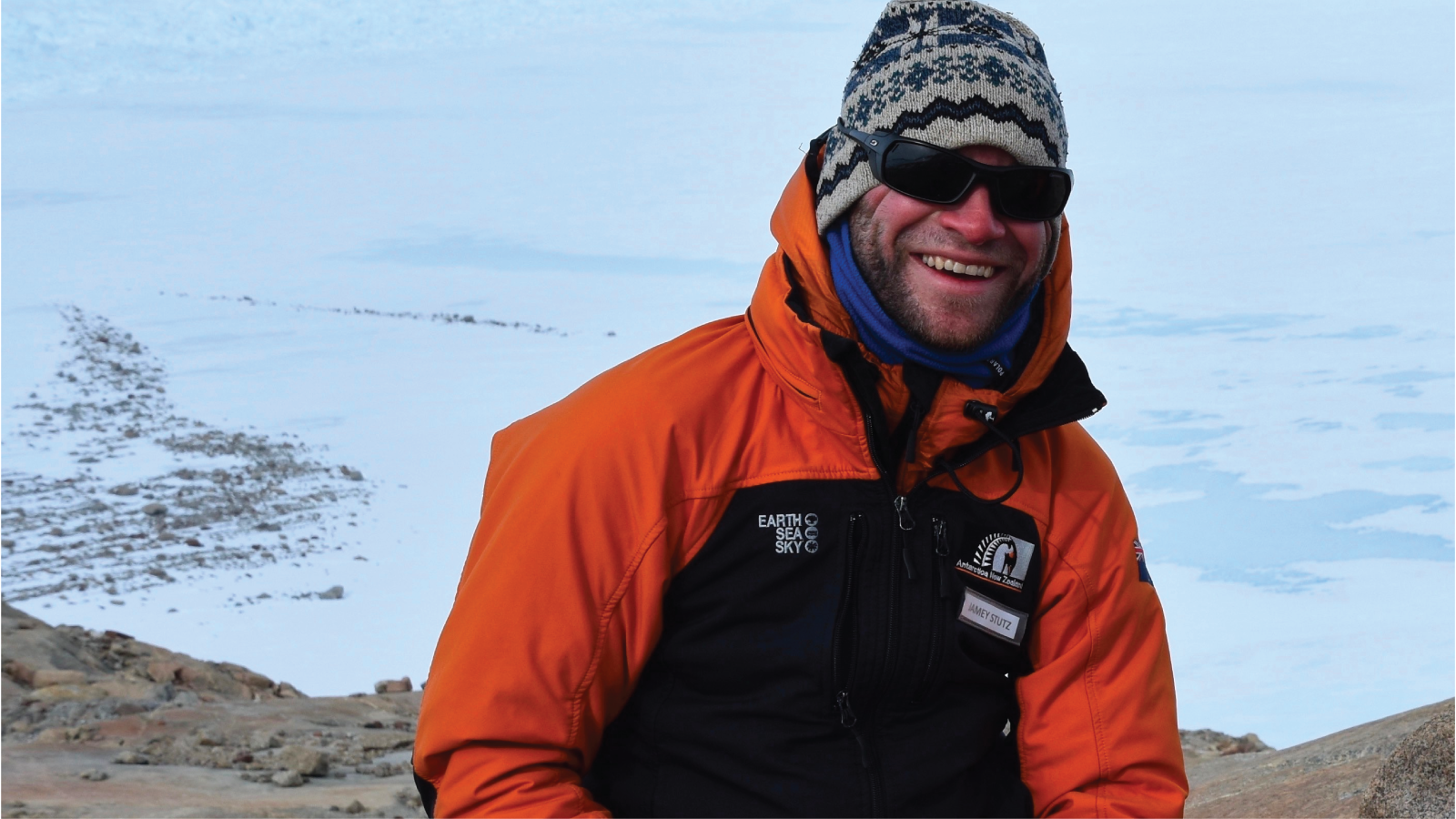Jamey Stutz
Jamey Stutz earned his B.S. and M.S. from SES in 2009 and 2012, respectively. Jamey is now a PhD candidate in the Antarctic Research Centre at the Victoria University of Wellington.
Contact: stutz.20@gmail.com
"I feel like my experience as an SES OSU student prepared me very well for my career and has set up a life full of wonderful memories. The support provided (Advisors, librarians, staff) is unparalleled in my experience. Everyone wants you to succeed!"
Where has your degree taken you?
As a B.S. student, I had the opportunity to join a field party to Northwest Argentina to do some structural geology mapping. Prior to field work, I took a holiday to Patagonia to get my feet on my first chunk of glacier ice. This gave me perspective on my thesis topic (Himalayan glacial geology using remote sensing) and set the stage for my Masters research. As a graduate student, I investigated the glacial geomorphology of the Antarctic seafloor using marine geophysics. This research led me to present at multiple international conferences and provided the opportunity to conduct field work in the Antarctic with the POLENET project. Under the guidance of Drs. Terry Wilson, Larry Krissek, and Peter Webb, I was given a robust introduction to the history and significance of Antarctic scientific investigation.
Over the summers of 2010 and 2011, I had the opportunity to intern at Shell Oil Co., in Houston, Texas. Somehow, I was fit into the research wing at Shell and participated in two amazing research projects using a combination of geology and geophysics. We looked at modern submarine channels as potential reservoirs and studied a well-known fault system in Utah to assess the viability of a carbon capture program. Ultimately, I was not offered a job with Shell but these opportunities served as valuable experience when it came time for job hunting. In 2011, I attended the AAPG meeting in Houston and managed to get a job as a geologist working for Repsol, a Spanish major oil company. I worked for Repsol for 5 years in a very active exploration project aimed at discovering oil on the North Slope of Alaska. This time provided incredible exposure to the oil and gas industry and enhanced my technical skill set—in addition to working in a multi-cultural, highly technical team of engineers and scientists.
During these five years working for Repsol—in the barren cold Arctic-Alaska, I remembered my Antarctic fieldwork fondly. I remained active in reading about the major scientific discoveries of the Antarctic, following friends on their journeys to the ice and even took holiday to attend a conference on Antarctic scientific drilling! After a bit of a search, my partner Katelyn Johnson (OSU SES-BPRC Alum, 2013) and I began our research at the Antarctic Research Centre at Victoria University of Wellington. I have since returned to the Antarctic for field work along the Tucker and David Glaciers. Working with a wonderful team of glacial geologists, we are focused on the long term behavior of some of the largest glaciers in the world. Proudly, in December 2017, I have completed my first field season focused solely on my research topic—the long term behavior of the David Glacier. Now to get cracking on lab work…
How do you feel your experience, specifically as an SES/geology student at OSU, prepared you for your career or life in general?
I feel like my experience as an SES OSU student prepared me very well for my career and has set up a life full of wonderful memories. The support provided (Advisors, librarians, staff) is unparalleled in my experience. Everyone wants you to succeed! Particularly, attention to general geology principles in Petrology, Structural Geology and Field Camp armed each student with a solid foundation to succeed in any sub-discipline they end up working in.
What is your favorite memory as a student?
Field camp (both as student and TA). Hands down, the most memorable experience as a geologist. Potential positive take from field camp: Friendships, appreciation for time and space factors in Earth Sciences, team work.
What advice do you have for current and future students?
Pursue, recognize and take full advantage of opportunities in front of you. One opportunity leads to the next, no matter how disconnected them seem.

